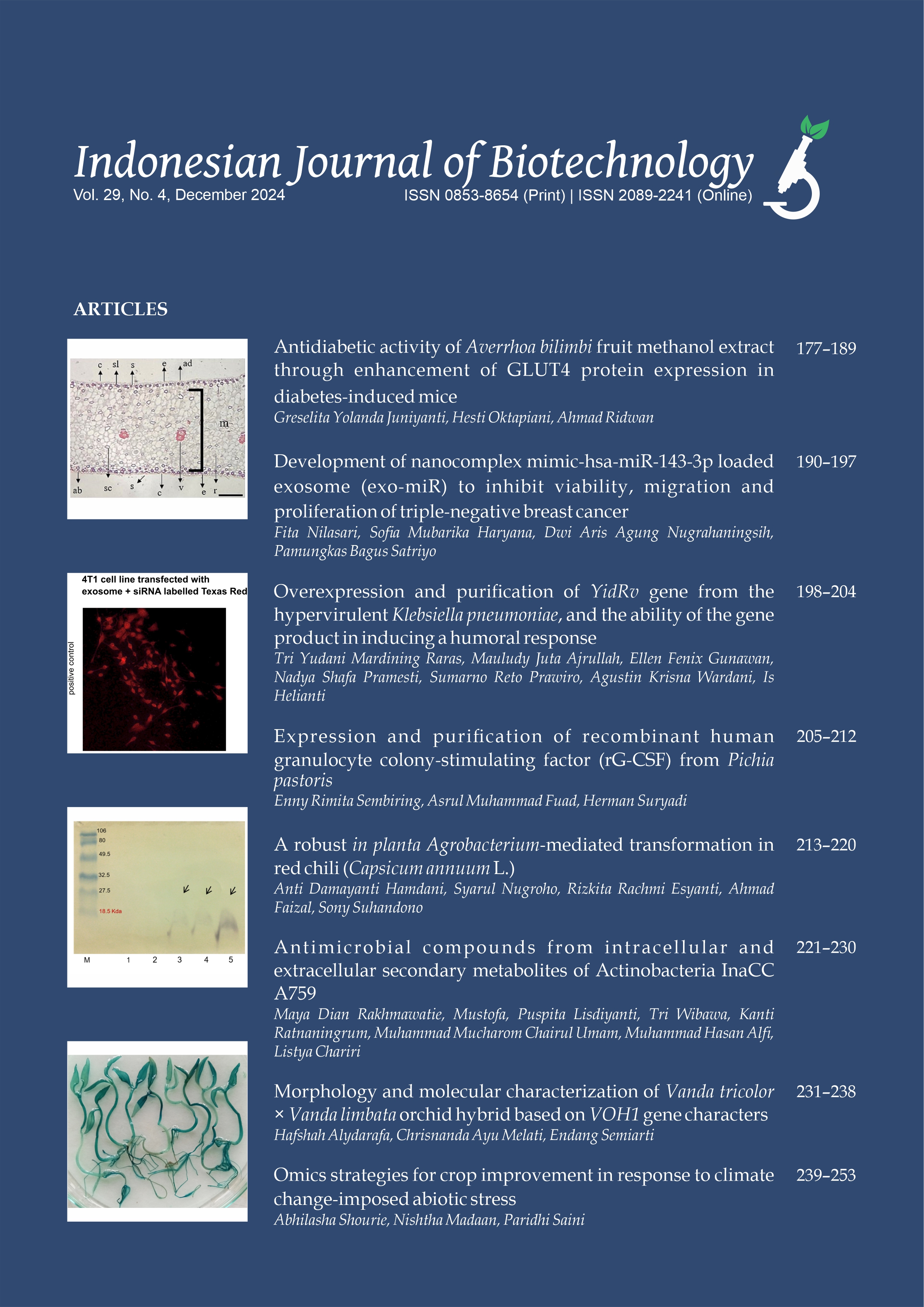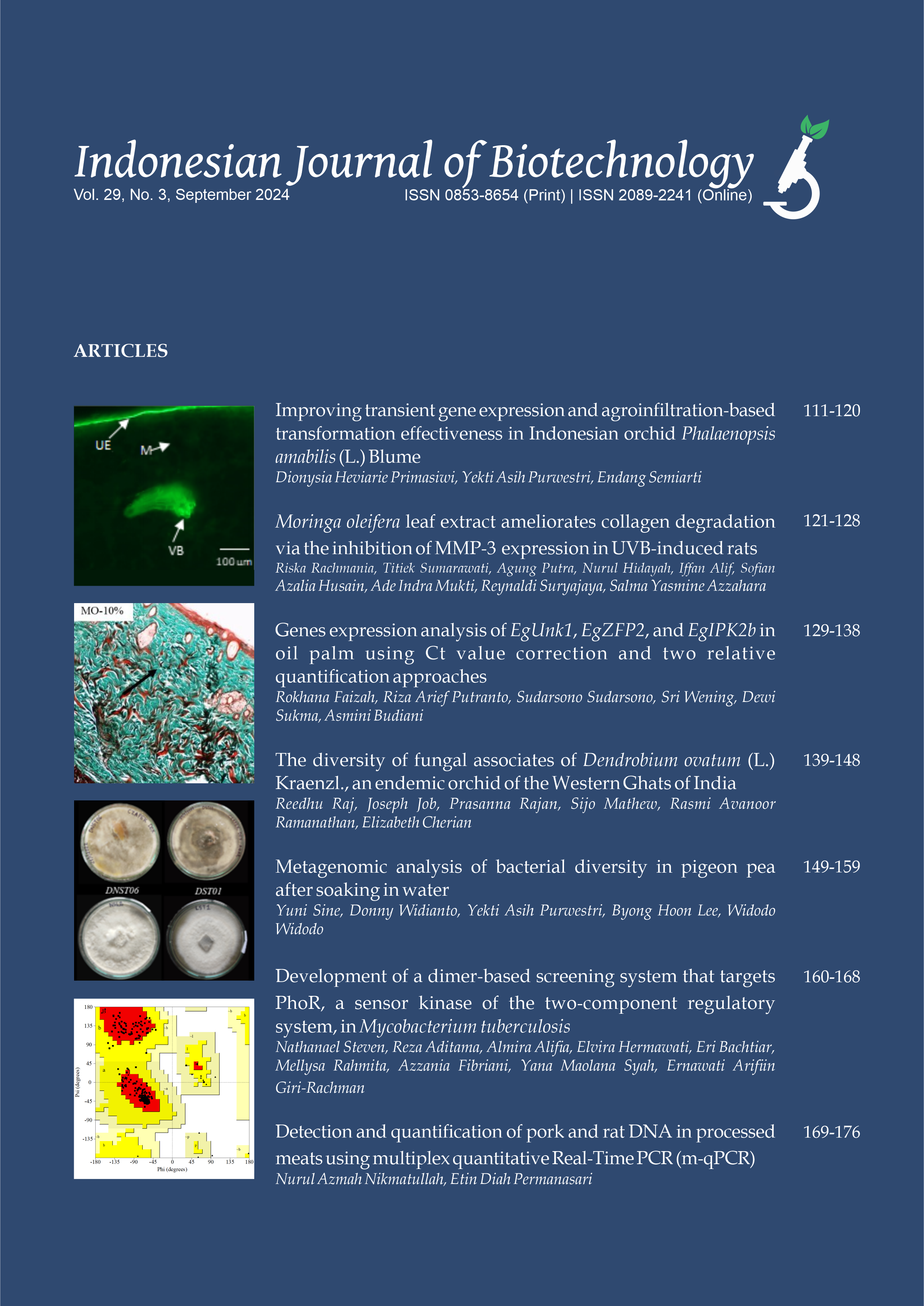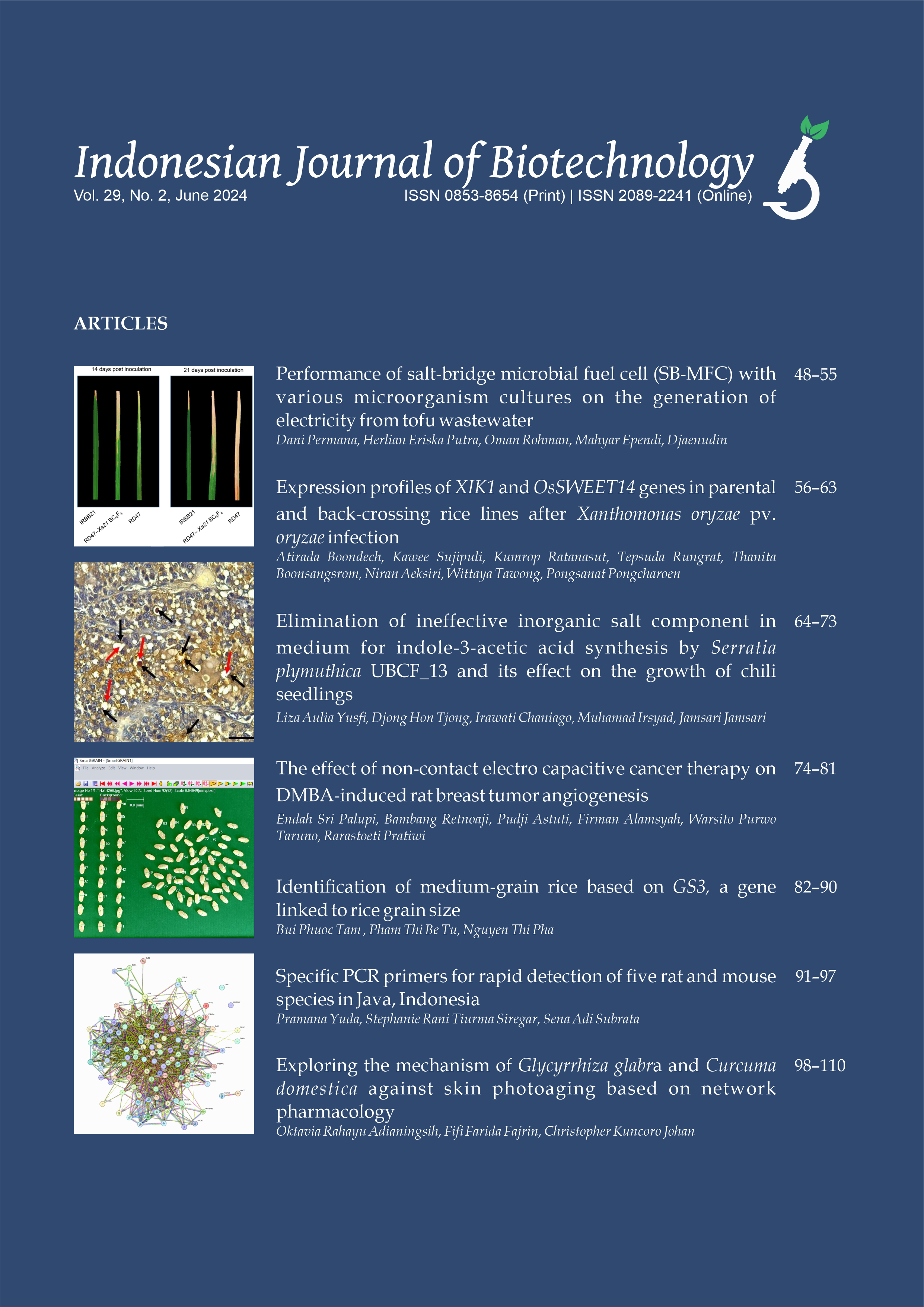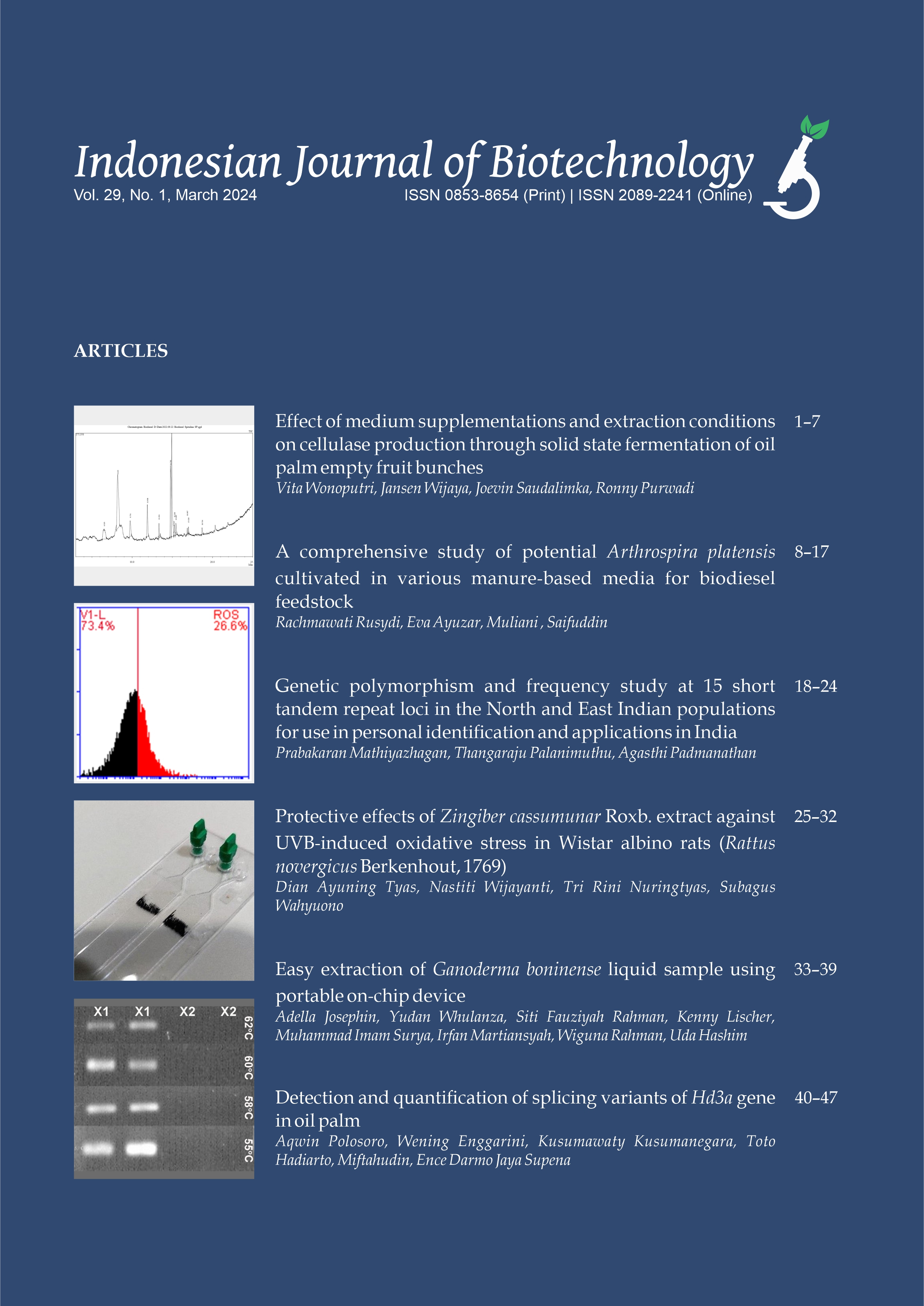DIGoxigenin (DIG) Labeled Probe Candidate of Surface Antigen 1 (SAG1) for Toxoplasma gondii Detection
Asmarani Kusumawati(1*), Nafratilova Septiana(2), Sri Hartati(3)
(1)
(2)
(3)
(*) Corresponding Author
Abstract
Toxoplasma gondii is one of the opportunistic pathogen that causes toxoplasmosis. Infection of Toxoplasma gondii has been estimated as high both in human and animal. The manifestation of infection were abortion, hydrocephalus, brain calcification, chorioretinal scar, and loss of productivity even to death in patients with acquired immunosuppression. Early diagnostic method which are rapid and accurate is essential for T. gondii detection because of its high prevalence. The purpose of this study was to develop a sensitive probes derived from Surface Antigen 1 (SAG1) for detection T. gondii and to examine the specificity and sensitivity of probe as diagnostic tool for toxoplasmosis. This research used SAG1 gene of T. gondii local isolate IS-1 that was cloned into pGEX-2T and transformed into Eschericia coli DH5α. The sequence of SAG1 was labeled with DIGoxigenin (non radioactive labeled) using PCR DIG Labeling Mix to derive 213 bp (probe-TS). BLAST and dot-blot hybridization analyses showed that probes had high specifity with other strains of T. gondii. Probe was able to detect T. gondii DNAup to 10 ng/μl of total sample DNA.
Full Text:
PDFArticle Metrics
Refbacks
- There are currently no refbacks.
Copyright (c) 2015 Indonesian Journal of Biotechnology









